#dairy sahiwal cow
Text
YADAV DAIRY FARM SRI GANGANAGAR

#buffalo#cow#cowboy#dairy products#panner#food dairy#dairy#milk#Cow for sale#Buffalo for sale#Bhais#Murrah#Sahiwal cow for sale#मुर्रा भैंस के
1 note
·
View note
Photo

Live Stock Karnal | Mahadev Dairy Farm
Mahadev Dairy Farm provides best live stock in Karnal. We are the supplier and trader of healthy cows. High-quality HF (Holstein Friesian), Jersey Cow, Sahiwal Cow, Tharparkar Cow, Gir Cow, Murrah Breed Buffalo, and many others are what we primarily breed, buy, and sell. Our dairy cows can graze better than most and yield a lot of milk.
#Live Stock Karnal#Best Live Stock Karnal#Top Live Stock Karnal#Live Stock Market Karnal#Best Live Stock Market Karnal#Top Live Stock Market Karnal
4 notes
·
View notes
Text
The Best A2 Cow Milk in South Delhi: Your Guide to Pure, Desi Goodness
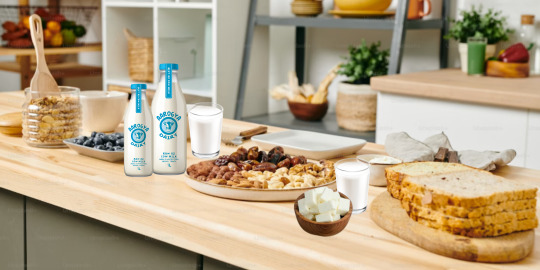
In recent years, A2 Cow Milk has gained significant popularity among health enthusiasts in South Delhi. Known for its numerous health benefits and superior digestibility compared to regular milk, A2 cow milk is becoming a staple in households that prioritize well-being and quality nutrition. If you're in South Delhi and looking for the best A2 cow milk, here's everything you need to know.
What Makes A2 Cow Milk Special?
A2 cow milk comes from indigenous cow breeds, such as the Gir, Sahiwal, and Red Sindhi, which produce milk containing only the A2 beta-casein protein. Unlike the more common A1 protein found in most commercial milk, the A2 protein is believed to be easier to digest and less likely to cause discomfort or allergies. Here are some reasons why A2 Cow Milk is considered superior:
Better Digestion: Many people who experience bloating or discomfort with regular milk find that A2 cow milk is gentler on their stomach.
Rich in Nutrients: A2 cow milk is packed with essential nutrients such as calcium, potassium, and high-quality protein.
Natural and Pure: Sourced from desi cows, A2 cow milk is often free from hormones and antibiotics that are commonly used in commercial dairy farming.
Benefits of Choosing Desi A2 Cow Milk in South Delhi
Opting for desi A2 Cow Milk in South Delhi comes with numerous benefits, including:
Local and Sustainable: By choosing desi A2 Cow Milk, you support local farmers and contribute to sustainable farming practices.
Health Benefits: As mentioned earlier, A2 cow milk is easier to digest and is packed with essential nutrients.
Ethical Farming: Suppliers of desi A2 cow milk often adhere to humane and ethical farming practices, ensuring the well-being of their cows.
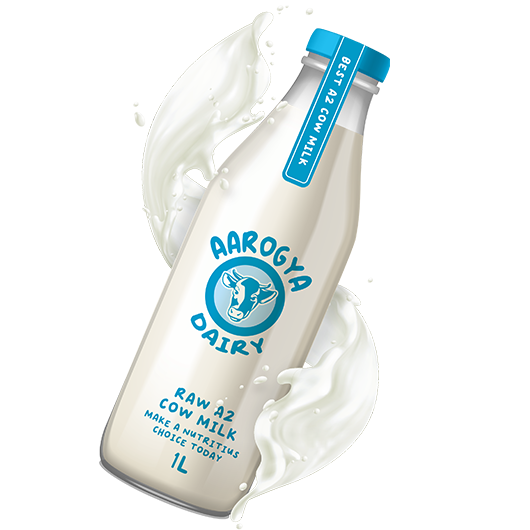
Best Places to Buy Desi A2 Cow Milk in South Delhi
South Delhi is home to several farms and suppliers dedicated to providing authentic Desi A2 cow Milk. Here are some of the best places to buy A2 cow milk in the region:
Aarogya Dairy Farms
At Aarogya Dairy Farms, our humble mission is to serve cows with love and devotion. In the process, we promote the growth of desi cowmilk and their products and help farmers get back to organic farming with the help of cows. Our cowmilk is produced naturally. Fresh A2 Cow Milk a nutrient dense milk indigenous to ancient india - the A2 aarogya milk comes from free grazing gir cows at the aarogya dairy farms. We are making milk the hero again with all the goodness of A2 milk.
Happy Milk
Happy Milk is a well-known supplier in South Delhi offering fresh and pure A2 cow milk. Their milk is sourced from healthy, well-cared-for desi cows, ensuring top-notch quality. They deliver directly to your doorstep, making it convenient for you to enjoy fresh milk every day.
Pride of Cows
Another reputable name in the A2 milk market, Pride of Cows offers premium quality A2 Cow Milk. Their farm-to-table approach ensures that the milk is untouched by human hands, maintaining its purity and freshness. They also offer subscriptions, so you never run out of your favorite milk.
Milk Route
Milk Route is dedicated to providing high-quality A2 Cow Milk in South Delhi. They emphasize ethical farming practices and ensure that their cows are well-nourished and stress-free. Their A2 cow milk is known for its rich taste and nutritional benefits.
Conclusion
For those in South Delhi seeking a healthier and more natural milk option, A2 Cow Milk is an excellent choice. With its superior digestibility, rich nutritional profile, and ethical sourcing, A2 cow milk stands out as the best option for milk lovers. Whether you choose Happy Milk, Pride of Cows, or Milk Route, you can be assured of receiving top-quality A2 cow milk delivered fresh to your doorstep.
Experience the benefits of A2 Cow Milk and make a positive change in your diet and lifestyle today!
#a2 cow milk in south delhi#best a2 cow milk in delhi#a2 milk south delhi#desi a2 cow milk south delhi#fresh a2 milk south delhi
0 notes
Text
Why Dailies Farm A2 Cow Ghee Tops the List of the Best Brand
Introduction:
In recent years, the demand for best A2 cow ghee morbi has been on the rise due to its numerous health benefits and superior quality. Among the various brands available in the market, Dailies Farm A2 Cow Ghee stands out as one of the best options. Produced in Morbi, known for its rich cattle farming heritage, Dailies Farm has gained a reputation for offering top-notch A2 cow ghee that caters to the discerning needs of health-conscious consumers. This article will explore the reasons why Dailies Farm A2 Cow Ghee deserves its place at the top of the list of the best brands.
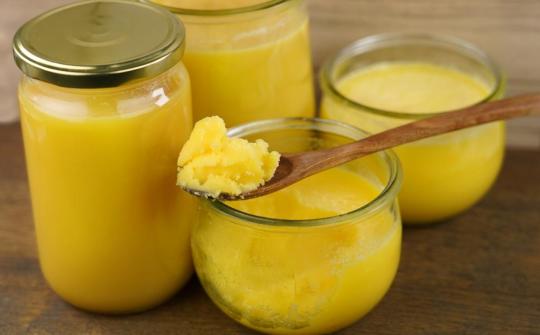
Morbi: The Land of the Best A2 Cow Ghee:
Morbi, a city located in the western state of Gujarat, has long been associated with high-quality dairy products, including A2 cow ghee. The region's fertile lands and favorable climate provide ideal conditions for raising healthy cows that produce A2 milk. This milk is known to contain the A2 beta-casein protein, which is believed to be easier to digest and offers several health benefits. Morbi's dairy farmers have mastered the art of traditional cow rearing and ghee production, ensuring that the final product retains its purity and nutritional value.
Superior Quality and Nutritional Value:
Dailies Farm takes great pride in sourcing milk from indigenous Indian cow breeds, such as Gir and Sahiwal, which are known for their A2 milk production. These cows graze on natural pastures, consuming a diet free from artificial additives and hormones. The milk is then carefully processed to extract butter, which is further churned to obtain rich and aromatic ghee. Dailies Farm A2 Cow Ghee undergoes rigorous quality checks to ensure that it meets the highest standards of purity and nutritional value.
Health Benefits:
A2 cow ghee has gained popularity not only for its rich flavor but also for its potential health benefits. It is believed to be beneficial for digestion, as it contains butyric acid, a short-chain fatty acid that supports gut health. A2 cow ghee is also rich in vitamins A, D, E, and K, which are essential for various bodily functions, including bone health, immune support, and vision. Furthermore, the presence of conjugated linoleic acid (CLA) in A2 cow ghee may offer antioxidant and anti-inflammatory properties.
Uncompromising Commitment to Quality:
Dailies Farm sets itself apart from other brands by its unwavering commitment to quality. The company follows stringent quality control measures at every step of the production process. From sourcing the milk to packaging the ghee, Dailies Farm adheres to strict hygiene standards and utilizes modern technology to maintain the freshness and purity of its products. The brand's dedication to quality has earned it the trust and loyalty of its customers.
Conclusion:
When it comes to choosing the best A2 cow ghee brand, Dailies Farm undoubtedly tops the list. Its origin in Morbi, a region renowned for its expertise in dairy farming, ensures access to the best A2 milk from indigenous cow breeds. By combining traditional methods with modern quality control measures, Dailies Farm produces A2 cow ghee of exceptional quality and nutritional value. The brand's commitment to providing a pure and wholesome product sets it apart from its competitors. Whether you are looking to enhance the flavor of your meals or reap the health benefits of A2 cow ghee, Dailies Farm is a brand you can trust. Experience the richness and goodness of Dailies Farm A2 Cow Ghee and elevate your culinary and wellness journey.
#BestGhee#A2CowGhee#MorbiGhee#PureGhee#HealthyChoice#FarmFresh#GheeLovers#OrganicGhee#GheeBenefits#TraditionalGhee#GheeFromMorbi
0 notes
Text
Desi Cow Milk In Jaipur
Desi Cow Milk in Jaipur offers a wholesome dairy experience rooted in tradition and quality. Sourced from indigenous cow breeds like Gir, Sahiwal, and Tharparkar, this milk embodies the essence of purity and nutritional richness. Jaipur, renowned for its cultural heritage, now embraces the heritage of Desi Cow Milk, catering to health-conscious consumers seeking natural alternatives.
With its distinctive creamy texture and flavor, Desi Cow Milk in Jaipur provides an authentic taste of rural India. Produced through ethical and sustainable practices, it upholds the reverence for cows deeply ingrained in Indian culture. Consumers prioritize Desi Cow Milk for its higher nutritional value, including essential vitamins, minerals, and A2 protein, which are believed to offer various health benefits.
In Jaipur's bustling markets and neighborhoods, Desi Cow Milk stands out as a symbol of authenticity and purity, resonating with those who prioritize traditional dairy production methods. Whether enjoyed fresh or transformed into dairy products like ghee and paneer, Desi Cow Milk in Jaipur is committed to quality, health, and cultural heritage, enriching consumers' lives while supporting local farmers and sustainable agriculture practices.
For inquiries about our authentic Desi Cow Milk in Jaipur and to experience the richness of tradition and quality, contact us today. Embrace our indigenous cow breeds' purity and nutritional benefits, sourced with care and reverence. Contact us now to elevate your dairy experience and support ethical and sustainable practices in Jaipur's dairy industry.
Visit: https://sunrisea2milk.com/ProductsImages/index/a2-milk
0 notes
Text
Explore The Diversity Of A2 Desi Cow Milk Products
A2 dairy products have gained popularity in recent years due to its perceived health benefits and nutritional value. Derived for the milk of a2 beta-casein-producing cows, this clarified butter has become a staple in many households. Let’s delve in the origins, production process and the potential health advantages associated with a2 dairy products. A2 Ghee is sourced from the milk of cows that exclusively produce a2 beta-casein protein. The cows, often traditional Indian breeds like Gir, Sahiwal and red Sindhi are believed to produce milk that is easier to digest compared to digest compared to the milk of a1 beta-casein producing cows. This ghee is produced by simmering butter to remove water content and milk solids, leaving behind pure, golden ghee. This ghee is rich in essential fatty acids, vitamins A, D, E and K and conjugated linoleic acid (CLA). The absence of milk solids makes it suitable for individuals who are lactose intolerant or have dairy sensitives. The nutritional profile, combined with the purported benefits of a2 desi ghee into various diets. Proponents of this ghee claims that it is easier to digest due to the absence of a1 beta-casein, a protein found in milk of certain breeds of cows. Some individuals report experiencing less digestive discomfort, when consuming A2 dairy products, attributing to protein composition.
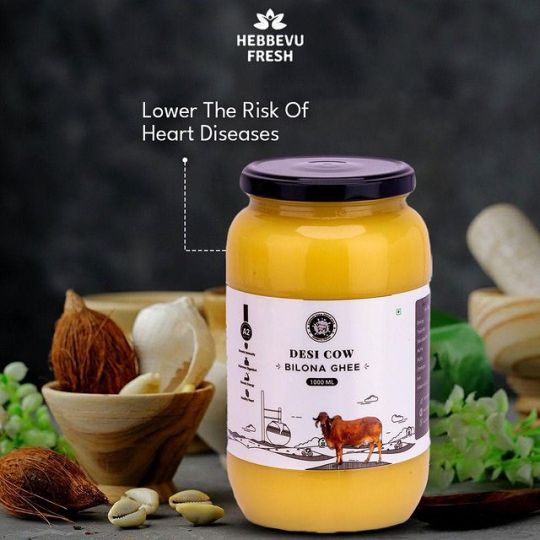
Potential health benefits:
While more research is needed, some studies suggest that A2 desi ghee may have potential health benefits, including ant-inflammatory properties, cardiovascular health support and improved gut health. However, it’s essential to approach these claims with a degree of skepticim, as individual response to dietary changes can vary. This ghee has captured the attention of health conscious consumers seeking alternatives to traditional dairy products. While anecdotal evidence and some studies suggest potential health benefits, it is crucial to approach these claims with caution and consult with healthcare professionals for personalized advice. As popularity of a2 desi cow ghee continues to grow, ongoing research will provide more insights into its nutritional value and potential contributions to overall well-being.
On the other hand, a2 desi cow milk, derived from cows producing a2 beta-casein protein, has emerged as a popular choice among consumers looking for a dairy alternative with potential health benefits. A2 desi cow milk is sourced from the cows that naturally produce a2 beta-casein protein in their milk. Traditional breeds such as Guernsey, Jersey and certain Asian breeds are known for predominantly producing a2 desi cow milk. This differs from the more common A1 desi cow milk, which contains A1 beta-casein, a protein that some individuals claim may lead to digestive discomfort. Proponents of this milk argue that it is easier to digest than a1 milk, particularly for individuals who may experience lactose intolerance or sensitivity to a1 beta-casein. Some consumers report fewer digestive issues and discomfort after switching to A2 desi cow milk, attributing these improvements to the absence of A1 protein. This milk retains the nutritional components found in traditional milk, including essential vitamins (A, D, B12) and minerals (calcium and phosphorus). It is often considered a good source of protein and can be an alternative for those who seek the nutritional benefits of milk without potential digestive challenges associated with a1 protein.
While ongoing research is exploring the poetical health benefits of a2 desi cow milk, some studies suggest that it may contribute to improved digestive health and reduce symptoms such as bloating and discomfort. Additionally, this milk advocates claim potential benefits in areas such as cardiovascular health. The popularity of this milk led to increased availability in market s worldwide. Many dairy producers now offer a2 desi cow milk products, ranging from liquid milk to yogurt and cheese. The growing consumer interest in alternative dairy option has driven innovation and market expansion in the a2 desi milk sector. While this milk gained popularity for its potential digestive benefits, it’s important to note that individual response to milk proteins can vary. Sweetened and flavoured versions of a2 desi cow milk cater to those seeking a convenient and tasty beverage option. A2 yogurt, this milk is used to produce yogurt, offering a probiotic –rich option for those looking to support gut health. A2 cheese, artisanal and commercial cheese made from a2 cow milk provides a flavourful alternative to traditional cheese. From creamy a2 desi cow milk-based sauces to a2 cheese-enhanced dishes, these products contribute to the culinary landscape with their distinct taste and potential health benefits.
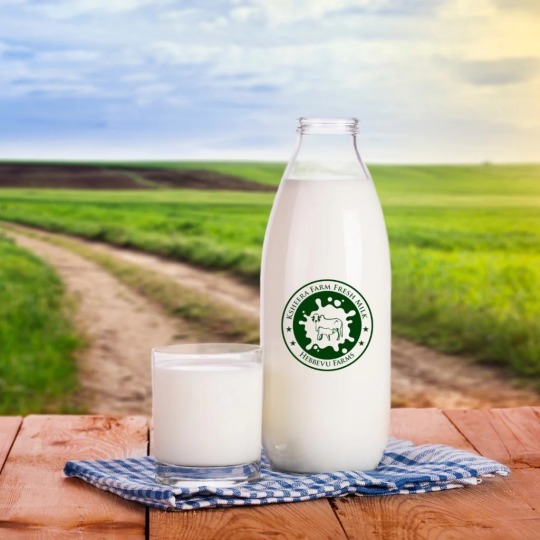
A2 milk products have diversified the dairy landscape, offering consumers a range of options beyond traditional a1-containing products. Whether for potential digestive benefits or a desire for unique flavours, individuals are increasing incorporating a2 desi milk products into their diets. As research continues to unfold, consumers can anticipate more informed choices and broader array of a2 desi cow milk-based offerings in the market.
0 notes
Text
REAL A2 MILK
What is A2 milk? Is all Desi cow milk A2? Is only Desi cow milk A2?
Most importantly, how do I check if the milk I am getting is genuinely A2?
A2 milk comes at a premium, (read : Why is A2 milk more expensive), and given the benefits we don’t mind paying the price. But there is always this uneasy feeling, whether what we are getting is actually A2 milk. There is way too much clutter and every milk vendor seems to be saying similar things, right?
Ok, so this might take some time, but let’s try and break this down.
What is A2 milk
Very simplistically, A2 is the nomenclature of one of the protein chains within the milk. Mammals naturally have A2 protein, but over last few hundred years, a lot of western cow breeds genetically mutated to have a mix of A1 and A2 proteins in the milk.
A2 milk refers to milk produced by cows having pure A2 genetics, with no presence of A1.
Holstein Friesian is the highest milk yielding breed, and now most common - in organized dairies across the world as well as India. It has A1 and A2 in approx 60:40 ratio. This varies for individual animal (depends on genetics)
Which Breeds produce A2 milk
It is very interesting to note that the presence of A2 protein seems to be inversely proportional to the milk yields of the respective breeds.
So yes, our Indigenous milch breeds like Sahiwal, Gir, Rathi, Tharparkar etc seem to have the genetics for producing pure A2 milk. The production levels make them uneconomical, hence the rampant crossbreeding.
Do all Desi cows produce A2 milk?
It is really difficult to find pure breed Desi cows, Sahiwal & Tharparkar being even tougher than Gir. We have spent last 6 years building our herd. We know. A lot of the animals look like they might be desi, but might have a percentage of HF/ Jersey ancestry.
The cross-breeding effort over the last three decades has been so rampant that even in government livestock farms, 5-10% of the desi breed cows have tested with some small percentage of A1 in milk.
Hence, the only way someone can say for sure that they are selling A2 milk is if ALL the animals are genetically tested for A2, individually.
This is of course the final stage, before that the farm needs to work towards ensuring the purity of breed in their herd. Most so-called desi cow farms are getting away with keeping non-descript/ cross breed cows which look similar to Sahiwal/ Gir but have exotic blood in them.
0 notes
Text
Miniature Breeds: Small Cows Making a Mark in India
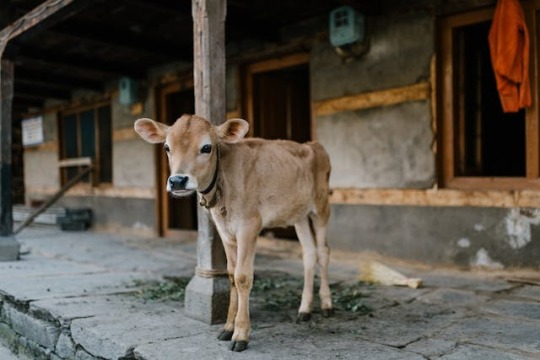
Introduction
India has a long and rich history of cattle farming, with cows considered sacred and highly revered in the country's culture. While traditional Indian cattle breeds are known for their robustness and utility, there's a rising trend in the country that's changing the face of cattle farming – the adoption of small cows. These small cows, often referred to as miniature breeds, are becoming increasingly popular among Indian farmers. In this article, we will explore the phenomenon of Small cows in India, their advantages, and their impact on the agricultural landscape.
The Rise of Small Cows in India
Small cows in India, also known as miniature cattle breeds, are selectively bred to be smaller in size compared to traditional cattle breeds. This trend has gained momentum in recent years, and several reasons account for the increasing popularity of small cows in the country:
Land Constraints: India faces a critical issue of decreasing agricultural land due to urbanization and population growth. Traditional large cattle breeds require more grazing and shelter space, which is often not feasible for many small-scale farmers. Small cows are a practical solution, as they require less land and can be reared in smaller enclosures.
Lower Feed Requirements: Smaller cows consume less feed compared to their larger counterparts, which makes them a cost-effective choice for resource-constrained farmers. This is especially important in regions where fodder and water scarcity are common problems.
Economic Sustainability: The smaller size of these cows translates into reduced maintenance costs. This not only benefits the farmers but also helps in conserving resources, which is crucial for sustainable agriculture.
Click here to know more : -
Advantages of Small Cows in India
Small cows have several advantages over their larger counterparts, making them a promising option for Indian farmers:
Cost-Effective Farming: Small cows are ideal for small and marginal farmers who might not have the resources to raise large cattle. They require less food, water, and space, reducing the overall cost of farming.
Enhanced Productivity: Despite their smaller size, small cows are still capable of producing a significant amount of milk and meat. They are known for their high milk yield relative to their body size, and the meat is also considered of good quality.
Improved Manure Production: Small cows generate a substantial amount of nutrient-rich manure, which can be used to fertilize crops, thereby enhancing agricultural productivity.
Disease Resistance: Miniature breeds often exhibit better resistance to common cattle diseases, making them easier to manage for farmers who lack access to advanced veterinary care.
Climate Adaptability: Small cows are well-suited to the diverse climatic conditions of India. They can thrive in both hot and cold climates, which is a significant advantage in a country with varying weather patterns.
Popular Small Cow Breeds in India
In India, several miniature cattle breeds have gained popularity, primarily due to their adaptability and economic advantages. Some of the notable small cow breeds include:
Sahiwal: Originally from Pakistan, the Sahiwal breed is known for its high milk production and adaptability to Indian climatic conditions. Sahiwal cows are medium-sized and are considered one of the best dairy breeds in the country.
Vechur: The Vechur breed is native to Kerala and is one of the smallest cattle breeds in the world. It is well-suited for small-scale dairy farming and is valued for its milk quality.
Punganur: Originating from Andhra Pradesh, the Punganur breed is small in size and highly resilient. They are renowned for their milk production and ability to thrive in arid regions.
Red Sindhi: Red Sindhi cattle, native to Sindh in Pakistan, are known for their high milk yield and heat tolerance. They are medium-sized and popular in several Indian states.
Khillar: The Khillar breed hails from Maharashtra and is small, sturdy, and well-suited for both milk and meat production. They are known for their low maintenance requirements.
Impact on Indian Agriculture
The adoption of small cows in India has the potential to significantly impact the country's agriculture sector:
Sustainable Farming: Small cows contribute to more sustainable and eco-friendly farming practices, as they consume fewer resources and generate less waste.
Income Generation: The high milk yield of small cows can provide an additional source of income for farmers, especially in rural areas where dairy farming is a primary livelihood.
Improved Nutrition: Increased availability of milk and meat from small cows can enhance the nutritional intake of rural and urban populations, contributing to better health outcomes.
Mitigating Land Constraints: The smaller size of these cows makes it possible for farmers with limited land resources to engage in cattle farming, ensuring a steady supply of dairy and meat products.
Conclusion
The rise of Small cows in India is reshaping the country's agriculture landscape, offering practical solutions to challenges such as land constraints, resource scarcity, and economic sustainability. These miniature breeds are proving to be a boon for small-scale and marginal farmers, providing opportunities for income generation and improved agricultural practices. As the popularity of small cows continues to grow, it is likely to have a positive impact on both the rural economy and the country's overall food security.
Read more : - Battling Skin Infections: A Dog Owner's Survival Guide
0 notes
Text
A2 Desi Cow Ghee vs. Regular Ghee: Understanding the Difference
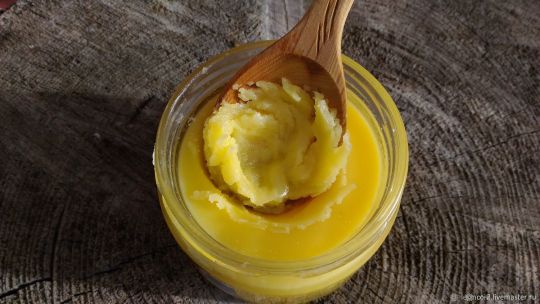
In recent years, the health-conscious consumer has witnessed a surge in the popularity of A2 cow ghee as an alternative to regular ghee. As more people become mindful of their dietary choices, the debate between A2 cow ghee and regular ghee has gained momentum. Let's delve into the nuances of these two types of ghee to better understand the differences and benefits each brings to the table.
The Basics of Ghee:
Ghee, a clarified form of butter, has been a staple in many culinary traditions for centuries. Renowned for its rich, nutty flavour and high smoke point, ghee is a versatile cooking ingredient. It is produced by simmering butter to remove water content and milk solids, leaving behind a golden, clarified liquid.
Regular Ghee:
Traditional ghee is typically sourced from a mix of A1 and A2 cow breeds. The distinction lies in the type of beta-casein protein present in the milk. A1 cows, common in Western breeds, produce milk with the A1 beta-casein protein, while A2 cows, found in breeds like the Indian Gir, kankrej and Sahiwal, produce milk with the A2 beta-casein protein.
A2 Desi Cow Ghee:
A2 desi cow ghee is derived exclusively from the milk of cows that produce A2 beta-casein protein. Proponents of A2 cow ghee claim that it is easier to digest and may be a better option for individuals who are sensitive to dairy or experience digestive discomfort with regular ghee.
Nutritional Differences:
While both A2 desi cow ghee and regular ghee share similar nutritional profiles, the key variance lies in the type of beta-casein protein. A2 cow ghee enthusiasts argue that the A2 protein is closer to the protein found in human milk, making it gentler on the digestive system. However, it's essential to note that scientific evidence supporting these claims is still evolving, and individual responses may vary.
Flavor Profile:
The flavour of ghee is a crucial factor in culinary applications. A2 desi cow ghee, with its distinct source from A2 milk, is often praised for a milder, more buttery taste compared to regular ghee. This subtle difference can significantly impact the overall taste of dishes, making A2 cow ghee a preferred choice for those who appreciate a nuanced flavour in their cuisine.
Puro Miles – A Trusted Source:
When it comes to selecting the right type of ghee, the source matters. Puro Miles, a brand synonymous with purity and quality, has positioned itself as a trusted supplier of A2 desi cow ghee. The brand's commitment to providing ethically sourced, high-quality ghee ensures that consumers can enjoy the benefits of A2 cow ghee with confidence.
Making an Informed Choice:
In the A2 cow ghee vs. regular ghee debate, personal preferences, dietary needs, and health considerations play a crucial role. Some individuals may find A2 cow ghee to be a gentler option for digestion, while others may not notice a significant difference. It's essential for consumers to make informed choices based on their health goals and flavour preferences.
Conclusion:
As the health and wellness landscape continues to evolve, the A2 cow ghee trend is likely to persist. While A2 desi cow ghee offers a potential alternative for those seeking a milder flavour and possible digestive benefits, regular ghee remains a wholesome and nutritious option. Puro Miles, with its dedication to quality, emerges as a reliable choice for those looking to incorporate A2 cow ghee into their culinary repertoire.
In the end, whether you opt for A2 desi cow ghee or regular ghee, the key is to enjoy these dairy delights in moderation as part of a balanced diet. Puro Miles stands as a beacon of trust, ensuring that your culinary journey is accompanied by the purity and goodness of high-quality ghee.
0 notes
Text
Best A2 Cow Ghee for Babies
When choosing A2 cow ghee for babies, you should focus on the same considerations for quality and purity as mentioned in the previous response. A2 cow ghee is believed to be easier to digest and may offer certain health benefits, but it's important to ensure that the ghee meets high standards of quality and purity. Here are some factors to consider:
Quality and Purity: Look for A2 cow ghee that is made from the milk of purebred A2 cows, such as indigenous Indian breeds like Gir, Sahiwal, or Red Sindhi. Ensure that the ghee is sourced from reputable and trustworthy sources.
Organic and Grass-Fed: Organic A2 cow ghee made from grass-fed cows is generally preferred as it tends to be more nutritious and free from harmful chemicals and pesticides.
No Additives or Preservatives: Choose ghee with no additives, colors, or preservatives. The ingredient list should be minimal and straightforward.
Certifications: Check for certifications that indicate the product's quality and authenticity, such as organic certification or A2 milk certification.
Reputation: Look for reviews and recommendations from other parents or individuals who have used the product for their babies.
Consult a Pediatrician: Before introducing any new food, including A2 cow ghee, to your baby's diet, consult with a pediatrician. They can offer guidance based on your baby's specific needs and any dietary considerations.
Here are a few brands that are often considered reputable for A2 cow ghee:
Patanjali A2 Cow Ghee: Patanjali is a well-known brand in India that produces A2 cow ghee.
Amul A2 Cow Ghee: Amul, another prominent Indian dairy brand, offers A2 cow ghee.
Organic India Cow Ghee: Organic India produces a range of organic products, including A2 cow ghee.
Bilona A2 Cow Ghee: Bilona is a term used to describe traditional hand-churned ghee, and there are various brands that offer Bilona A2 cow ghee.
Always remember to start with small amounts and observe your baby for any adverse reactions when introducing new foods, including ghee, into their diet. It's crucial to prioritize your baby's health and well-being, and consulting with a healthcare professional can provide specific guidance tailored to your child's needs.
0 notes
Text
From Farm to Table: How is Pure A2 Cow Ghee Made and Why Does It Matter?

Pure A2 Cow Ghee production at Nutrisoul follows a meticulous process, highlighting the brand's commitment to quality and health. It all starts with sourcing milk from select Indian breeds like Gir and Sahiwal, which naturally produce A2 milk rich in A2 beta-casein protein. This protein is believed to be easier to digest and less likely to cause sensitivities compared to A1 beta-casein found in conventional milk.
The milk collected undergoes stringent quality checks to ensure it's free from antibiotics and hormones. It's then gently and traditionally churned into butter, preserving its natural nutritional profile. This butter is slowly heated to allow the separation of water and milk solids, leaving behind the golden liquid – ghee.
The next step involves simmering this pure butter over an open flame. This slow-cooking process prevents scorching and helps eliminate any remaining moisture and impurities. The result is Nutrisoul's signature A2 cow ghee, a rich, aromatic, and flavorful product.
Why does this process matter? Nutrisoul emphasizes the significance of the A2 milk source. Research suggests that A2 milk might be more suitable for some individuals, especially those with dairy sensitivities. By focusing on A2 milk, Nutrisoul aims to provide ghee that can be enjoyed by a wider range of people.
Traditional production methods are another crucial aspect. The slow churning and simmering not only contribute to the ghee's distinct taste but also help retain essential nutrients and compounds. This attention to detail aligns with the brand's goal to offer ghee that's not only delicious but also preserves the potential health benefits associated with ghee.
In essence, Nutrisoul's Pure A2 Cow Ghee stands as a testament to the brand's dedication to crafting a product that merges tradition, quality sourcing, and potential health advantages. From farm to table, every step is carefully orchestrated to deliver a premium ghee that caters to the discerning consumer who seeks not just taste, but also the potential benefits of A2 cow dairy.
0 notes
Photo
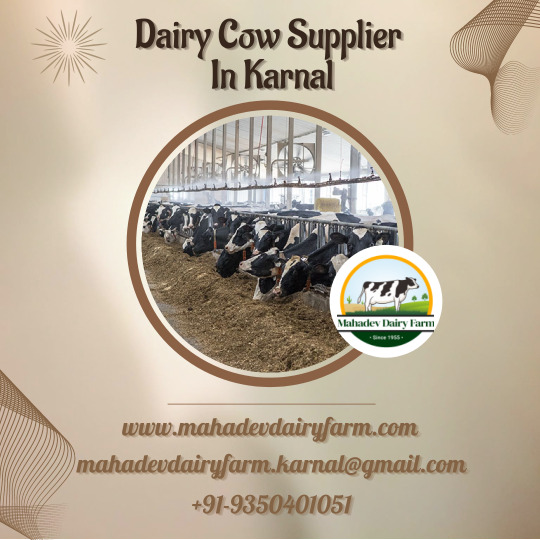
Dairy Cow Supplier In Karnal | Mahadev Dairy Farm
Mahadev Dairy Farm is the top leading dairy cow supplier in karnal. We primarily focus on high quality hf cow, jersey cow, sahiwal cow, tharparkar cow, gir cow and many more. We supply chemical-free feed to these animals, which helps us provide critical nutrients to their bodies and, as a result, boosts their milk production capacity.
#dairy cow supplier in karnal#best dairy cow supplier in karnal#top dairy cow supplier in karnal#dairy farm cow supplier in karnal#best dairy farm cow supplier in karnal#top dairy farm cow supplier in karnal#dairy farm cow trader in karnal#Best dairy farm cow trader in karnal#top dairy farm cow trader in karnal#dairy cow trader in karnal#best dairy cow trader in karnal#top dairy cow trader in karnal
3 notes
·
View notes
Text
जानिए भारत में गाय किस नस्ल की बढिया हैं और कौन सी कितना दूध देती हैं
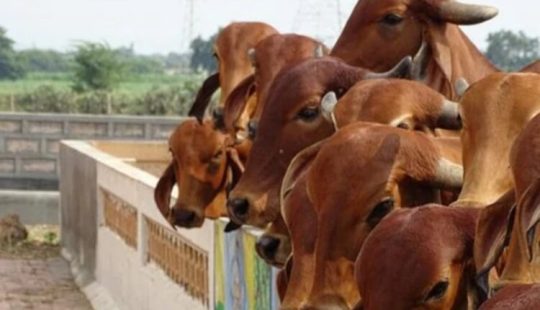
भारत में गाय पालन (Cow Farming/Dairy farming) एक बेहतरीन व्यवसाय है। देसी गाय के दूध की पौष्टिकता को देखते हुए इसकी मांग अधिक है। छोटे बच्चों को भी डॉक्टर माँ के दूध के बाद गाय का दूध देने की ही सलाह देते हैं।
आइये आज हम देसी गाय और उनकी नस्लों के बारे में जानते हैं…
देसी गाय की पहचान
भारत में देसी गाय (Desi Cow) की पहचान करना काफी आसान है। देसी गायों में कूबड़ पाया जाता है। इसी कारण इन्हें कूबड़ धारी भारतीय नस्ल की गाय भी कहा जाता है।
ज्यादा दूध का उत्पादन देने वाली देसी गाय
देसी गाय की नस्ल जिस क्षेत्र की है, अगर उसी क्षेत्र में पाली जाए, सही से दानापानी दिया जाए तो उत्पादन अच्छा होता है। आज हम आपको बताएंगे कि किस क्षेत्र में गाय की कौन सी नस्ल ज्यादा फायदा दे सकती है।
गिर नस्ल (Gyr cattle Breed)
गिर नस्ल की गाय मूलतः गुजरात के इलाकों से आती हैं। गिर के जंगलों में पाए जाने के कारण इनका नाम “गिर” पड़ा है। इन्हें भारत मे सबसे ज्यादा दूध उत्पादन देने वाली नस्ल माना जाता है। इस नस्ल की गाय एक दिन में 50-80 लीटर तक दूध दे सकती है। इस गाय के थन बड़े होते हैं। देश ही नहीं, विदेशों में भी इस गाय की काफी मांग है। इजराइल और ब्राजील के लोग गिर गाय को पालना पसंद करते हैं।
साहीवाल नस्ल (Sahiwal cattle Breed)
साहीवाल गायों को दूध व्यवसायी काफी पसंद करते हैं। यह गाय सालाना 2000 से 3000 लीटर तक दूध उत्पादन करती है। एक बार मां बनने पर लगभग 10 महीने तक ये दूध देती है। इन्हें भारत की सर्वश्रेष्ठ प्रजाति माना जाता है। मूल रूप से ये नस्ल पंजाब, हरियाणा, उत्तर प्रदेश, मध्य प्रदेश और राजस्थान में पाई जाती है।
राठी नस्ल (Rathi Breed Cow)
राठी नस्ल राजस्थान की है। राठस जनजाति के नाम पर इनका नाम राठी पड़ा है। इन्हें ज्यादा दूध देने के लिए जाना जाता है। यह गाय राजस्थान के गंगानगर, बीकानेर और जैसलमेर इलाको�� में पाई जाती हैं। यह गाय प्रतिदन 6-8 लीटर दूध देती है।
हल्लीकर नस्ल (Hallikar Breed)
हल्लीकर गाय कर्नाटक में पायी जाने वाली नस्ल है। मैसूर (कर्नाटक) में ये नस्ल सबसे ज्यादा पायी जाती है। इस नस्ल की गायों की दूध देने की क्षमता काफी ज्यादा होती है।
हरियाणवी नस्ल (Haryana Cow Breed)
नाम के मुताबिक ये नस्ल हरियाणा की है। मगर उत्तर प्रदेश और राजस्थान के क्षेत्रों में भी इसे पाया जाता है। ये गाय सफेद रंग की होती है। इनसे दूध उत्पादन भी अच्छा होता है। इस नस्ल के बैल खेती में भी अच्छा कार्य करते हैं।
और पढ़ें.....
#best indian cow#dairy farming#indian cows#konsi desi gay badiya hai#milk farming#कांकरेज नस्ल#गाय#देसी गाय की पहचान#भारत में गाय
1 note
·
View note
Text
Why is the Gir cow a better breed than other native cows?
What are the top 5 A2 desi milking cows?
The Remarkable Gir Cow: Exploring Its History and Superiority The Gir cow, which is indigenous to Gujarat's Gir forest region, has a fascinating history and stands tall among indigenous cow breeds. Its uniqueness and superiority can be seen in a variety of ways.
Let's look at the Gir cow's fascinating history, why it's considered superior to other indigenous breeds, and learn about the top five A2 milk-producing desi cows, their characteristics, and the nutritional value of A2 milk.
The History of Gir Cow:
The Gir cow has a long, amazing history that spans back many centuries. The ancient Zebu cattle, which were valued for their toughness and adaptability, are the breed's ancestors. The Gir cow developed into a separate breed over time which is ideal for the many climatic conditions found in the Gir forest.
Since then, it has come to represent hardiness, strength, and exceptional milk production.
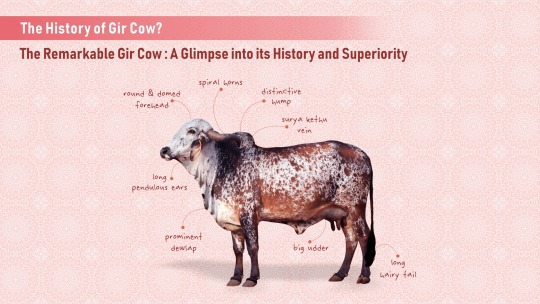
The Superiority of the Gir Cow:
The Gir cow is distinguished from other native breeds by a number of outstanding characteristics, including:
1) The Gir cow's extraordinary flexibility is demonstrated by its capacity to flourish in a variety of conditions, from hot and humid areas to dry terrain.
2) Strong Immune System: This breed has a strong immune system, which makes it less prone to illnesses and ensures the cow's general health and well-being.
3) High Milk Yield: The Gir cow is well known for producing a lot of milk, which makes it a great choice for dairy production. Gir cows are in high demand due to the exceptional quality and quantity of milk provided by A2 cows.
1) Gir Cow:
Gir Cow is known for its high milk production and rich A2 milk. It originated in the Gir forest region of Gujarat, India. Here are its characteristics and nutritional values.
Characteristics:
1) Large breed with a well-developed physique.
2) The colour of the coat ranges from reddish brown to white.
3) Strong and adaptable to various climates.
4) Known for their gentle temperament.
2) Sahiwal:
Another popular breed is the Sahiwal, which is known for its high milk yield and adaptability to hot climates. It originated in Pakistan and India's Punjab region. Here are its nutritional values and characteristics.
Characteristics:
1) Medium to large-sized breed with a sturdy build.
2) Coat color ranges from reddish brown to dark brown.
3) Excellent heat tolerance and disease resistance.
4) Known for their docile nature.
3. Khangrej:
Khangrej is a popular milking breed found in Rajasthan, India's arid regions. It is highly regarded for its high milk yield and ability to thrive in harsh conditions. Here are its nutritional values and characteristics.
Characteristics:
1) Medium-sized breed with a compact body.
2) Coat color ranges from light gray to silver-gray.
3) Well-adapted to drought-prone areas.
4) Known for their strong legs and hard hooves.
4. Khillari:
Killari is a native breed found in the Karnataka and Maharashtra region of India. It is prized for its high milk production and hardiness. Here are it's characteristics and
nutritional values,
Characteristics:
1) Medium-sized breed with a well-built body.
2) Coat color ranges from white to light gray.
3) Adaptable to various climatic conditions.
4) Known for their excellent grazing abilities
5. Tharparkar:
Tharparkar is a well-known milking breed that originated in Rajasthan's Thar Desert. It is appreciated for its adaptability and high milk quality. Here are it's attributes and nutritional values,
Characteristics:
1) Medium-sized breed with a slim build.
2) The colour of their coat varies from white to light grey.
3) They are well-adapted to hot and dry climates
4) It is known for its efficient foraging abilities.
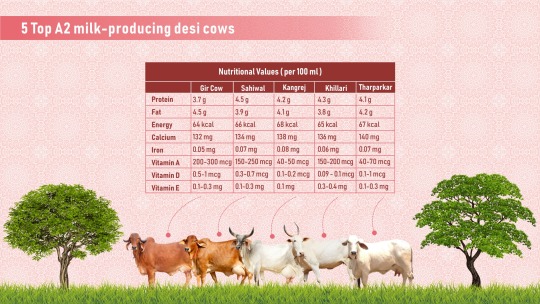
Gir Cow, Sahiwal, Khangrej, Killari, and Tharparkar are among the desi cow breeds that produce nutritious A2 milk with varying protein, fat, energy, calcium, vitamins, and iron content. Incorporating these milk varieties into your diet can help you get the nutrients you need to live a healthy lifestyle.
#chemicalfree#food#food diary#foodblogger#grocery#natural products#organic#no preservatives#healthy food#organic food
0 notes
Text
Which is the highest milk yielding cow in India?
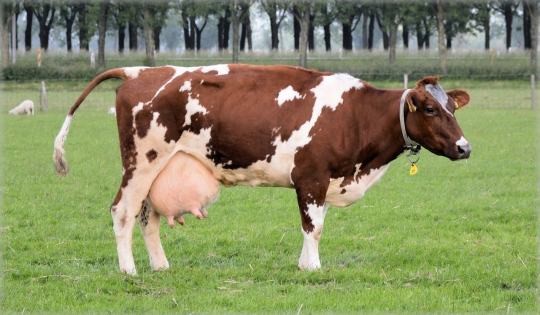
The dairy industry is a significant contributor to the Indian economy, and milk production is an essential aspect of it. India is the world's largest milk producer, with approximately 187.7 million tonnes of milk produced in 2019-20, according to the Ministry of Fisheries, Animal Husbandry, and Dairying. Cows are the primary source of milk in India, and different breeds of cows have varying milk yield capabilities. In this article, we will explore the highest milk-yielding cow breeds in India and high milk yielding cows in india.
Holstein Friesian:
Holstein Friesian is a breed of cow that originated in the Netherlands and is renowned for its high milk production capabilities. These cows can produce an average of 25 to 30 liters of milk per day, and their milk has a high butterfat content of approximately 3.5%. Holstein Friesian cows are popular in India, particularly in the northern regions, where the weather conditions are conducive to their growth and production.
Jersey:
Jersey is a small-sized cow breed that originated in the Channel Island of Jersey. Jersey cows are popular in India for their high milk yield capabilities, and they can produce an average of 14 to 16 liters of milk per day. Their milk has a high butterfat content of approximately 5%, which makes it ideal for making dairy products such as cheese and butter.
Gir:
Gir is a breed of cow that originated in the Gir forest region of Gujarat. These cows are medium to large-sized and have a distinct hump on their shoulders. Gir cows are known for their high milk yield capabilities and can produce an average of 12 to 16 liters of milk per day. Their milk has a high butterfat content of approximately 4.5%, making it ideal for making ghee, which is a popular cooking ingredient in India.
Sahiwal:
Sahiwal is a breed of cow that originated in Pakistan but is also found in India. These cows are medium to large-sized and have a reddish-brown coat. Sahiwal cows are known for their high milk yield capabilities and can produce an average of 8 to 10 liters of milk per day. Their milk has a high butterfat content of approximately 4.5%, making it ideal for making dairy products such as butter and cheese.
Red Sindhi:
Red Sindhi is a breed of cow that originated in the Sindh region of Pakistan but is also found in India. These cows are medium to large-sized and have a reddish-brown coat. Red Sindhi cows are known for their high milk yield capabilities and can produce an average of 8 to 10 liters of milk per day. Their milk has a high butterfat content of approximately 4%, making it ideal for making dairy products such as cheese and yogurt.
Tharparkar:
Tharparkar is a breed of cow that originated in the Thar desert region of Rajasthan. These cows are medium to large-sized and have a white or light grey coat. Tharparkar cows are known for their high milk yield capabilities and can produce an average of 8 to 10 liters of milk per day. Their milk has a high butterfat content of approximately 4%, making it ideal for making dairy products such as ghee and butter.
In conclusion, Holstein Friesian, Jersey, Gir, Sahiwal, Red Sindhi, and Tharparkar are some of the highest milk-yielding cow breeds in India. These cows are popular among dairy farmers for their high milk yield capabilities and their milk's high butterfat content, which makes it ideal for making dairy products such as cheese, butter, and ghee. The selection of a particular cow breed.
0 notes
Text
The Unique Benefits Of Desi Cow Milk
Cow milk, one of the most consumed and versatile dairy products worldwide, has been a dietary staple for centuries. It’s not just a thirst quencher; cow milk is a powerhouse of nutrients, offering a wide range of health benefits. Cow’s milk Bangalore, is renowned for its rich nutritional profile. It is an excellent source of calcium, which is vital for strong bones and teeth. In addition to calcium, it provides essential nutrients such as vitamin D, protein, potassium and vitamin B12. Milk is a complete protein source, meaning it contains all the essential amino acids needed for growth and repair in the human body. This makes it an ideal dietary choice for vegetarians and individuals looking to increase their protein intake. Calcium is crucial for bone health and cow milk provides a readily absorbable source of this mineral. It plays a pivotal role in preventing osteoporosis and maintains bone density. Cow milk is often fortified with vitamin D, which is essential for calcium absorption. This fat-soluble vitamin helps maintain bone health, boosts the immune system and supports overall well-being. Milk’s high water content makes it an effective hydrating beverage. It can help replenish lost fluids and electrolytes, especially after physical activity. Apart from its role as a beverage, cow milk serves as a versatile ingredient in the kitchen. It’s the base for various dairy products like yogurt, cheese and butter and a key component in countless recipes, both savoury and sweet. Cow milk is a nutritious and adaptable food source that has been a dietary staple for generations. Its benefits include providing essential nutrients, supporting bone health and serving as a culinary cornerstone. Whether enjoyed in a glass, pored over cereal or used in cooking, cow milk continues to be a valuable part of many diets, contributing to overall health and well-being.

On the other hand desi cow milk, also know as indigenous or traditional cow milk, is a distinct variety of milk sourced from native cattle breeds, primarily found in India. Desi cow milk has gained popularity for its unique characteristics and potential health benefits, which set it apart for milk produced by other breeds. Desi cow milk is primarily obtained from indigenous Indian cattle breeds such as Gir, Sahiwal, Red Sindhi and many others, these breeds have been adapted to Indian subcontinent’s climate and are known for their pliability. One of the standout features of desi cow milk is its higher A2 beta-casein protein content. A2 milk is believed to be easier to digest and less likely to cause digestive discomfort in some individuals, compared to the a1 protein found in milk from other cow breeds. Desi cow milk is a rich source of essential nutrients, including calcium, vitamin D, protein and various vitamins and minerals. It is considered a wholesome and nutritious beverage, supporting bone health and overall well-being. Desi cow milk has long history in ayurveda, the traditional Indian system of medicine. It is believed to possess medicinal properties and is often used in ayurvedic remedies. Ghee, a clarified butter is made from desi cow milk, is particularly revered for its therapeutic potential. Desi cows are usually reared in more natural and open grazing environments, which can contribute to the quality of their milk. Their diet typically includes a variety of native grasses, herbs and other forage, which can impart unique flavours to the milk.
Desi cow holds cultural and religious significance in India and it is used in various rituals and ceremonies. It has a special place in Indian tradition and folklore. Indian cuisine is celebrated for its diversity, complexity and the use of a wide range of ingredients, including desi cow milk. Desi cow milk holds a special place in Indian cooking and it is used in various traditional dishes, contributing to the rich flavours and textures that characterize Indian cuisine. Desi cow milk is used to prepare paneer, a fresh Indian cheese. Paneer is a versatile ingredient that appears in dishes. It is known for its mild taste and ability to absorb the flavours of the spices and sauces it’s cooked with. Kheer, a popular Indian dessert, is made using desi cow milk. It’s a creamy and sweet rice pudding flavoured with some spices and nuts. The richness of the milk contributes to the luscious texture of this beloved dessert. In conclusion, desi cow milk Bangalore is a unique and nutritionally rich variety of milk known for its potential health benefits, a2 protein content and cultural significance. While it may not be widely available as milk from high-yield dairy breeds, it remains a cherished and sought-after source of nutrition and traditional wisdom in India. As with any food product, it is important to choose milk that aligns with your dietary preferences and health considerations. Stay healthy!
0 notes